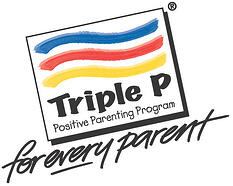
It is not surprising then that many parents have mixed feelings about imposing rules. On the one hand they want their children to learn what is expected of them so they can get on with others. At the same time they do not want their children to be blindly obedient to adult authority.
For children to become socially responsible they must learn that reasonable rules and limits are there for their safety and well-being, not because it’s convenient for parents. Rules help children learn exactly what sorts of behaviors are considered appropriate by their parents and what is not acceptable. They also help children learn an understanding of how fair rules are developed.
Families with no rules often live in chaos — stresses abound for both parents and children, and family life can become a continuous battleground.
However, too many rules doesn’t help much either. While audiences always get a chuckle out of the military-like order of the Von Trapp household in the film Sound of Music, this type of approach to parenting can sometimes occur in real life, with all too negative consequences.
There are five things to remember when setting family rules.
They should be:
- Few,
- Fair
- Easy to follow,
- Enforceable and
- Positively stated.
Keeping the number of rules small means less opportunity for children to break them and thus less problems with discipline. And while each family has to decide on what sorts of rules are appropriate, I believe there are some important rules for all children to observe.
- Children should always let their parents know where they are
- Children should always return home by the agreed time
- Children should respect and look after other people’s property
- Children should speak to other family members in a reasonable manner
Of course, there’s no point in setting rules if you aren’t prepared to enforce them. Enforcement for family rules isn’t about punishment, rather, children should be praised when they observe rules and have consistent consequences if a rule is broken. Possible consequences include withdrawing privileges such as television watching for a set period, grounding children, extra duties or chores, or withdrawing pocket money.
It’s important too that rules are clearly explained so that there is no confusion over how to follow them. Rather then having a long list of “don’ts,” rules should be stated as positive “do’s”. This ensures rules are specific and easy to follow. For example, instead of telling your child “Don’t make a mess in the bathroom,” it is more helpful to say “Pick up your clothes and towels after taking a bath.”
It’s also a good idea to avoid vague using phrases such as “Be careful when you ...” or “Show respect to your elders,” in place of explicit rules. They don’t tell your children what to do and end up just sounding preachy.
PARENTING TIP
It sometimes useful to lay down specific ground rules before going to particular places such as visiting relatives, or traveling for holidays. In these cases the rules operate just for the duration of the trip. Call a family meeting to explain the rules, making sure there are no distractions, and ask for your child’s opinion of the rules to see if compromises need to be made. When all are agreed ask your children to repeat the rules, and if necessary write them down and stick them on the fridge for everyone to see.Source - Triple P Positive Parenting Program, generously funded by The Children's Trust
Looking for more parenting tips to help your kids grow up safe, healthy and drug free?

